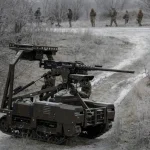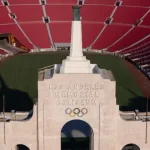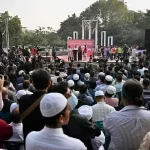
The 1st World War, in a period of four years, between the years 1914 and 1918, ate up almost 20 million human lives and left another 20 million wounded.
Was the assassination of Archduke Ferdinand of Austria – the heir-apparent to the throne of Austria-Hungary – an event that could engulf almost all the countries of the world, with over 25 major active fronts, each consuming armies of several countries? Or were there much deeper rooted causes (some historians account over a 100 countries being affected by this war)?
To realize the true gravity of the situation that could have brought humanity to such a potential, one must examine the global situation of that time. It was in the 16th century that the Europeans first started coming out of their countries to occupy lands far and wide; Spain and Portugal, with their mighty fleets, captured major port lands from Chile, South America to East Timor, top of Australia. By the end of the 19th century, more than 80% land of the world had been colonized, mainly by Britain, France, Spain, Portugal, Austro-Hungary, Russia, the Qing Chinese Empire and some others. The boundaries of the colonies of these empires often clashed, and there was a permanent air of confrontation between them.
As the 20th century came to its dawn, several of these colonial powers started making such alliances within them that could help to secure their permanent hegemony upon their imperial extents and, possibly, build up power enough to grab ‘all’. This was gradually touting the tension between the contenders, with several disputes arising every now and then.
On top of all this, the new revolutionary advances in industry after the 1850s, with the coming of large scale industries involving mass fuel extraction, metallurgy, transport and communication, all added up as unprecedented opportunities of accumulating advanced warfare machines and artillery in the hands of the global bounty hunters.
The greed for permanent and complete global imperial power engaged these colonialists in an intense arms race, which was kept secret, not only from the enemy but also from their own people, as far as could be. While the laborers of these large industries lived in dire living conditions, dumped in damp, overcrowded rooms, working for long hours, under-fed and slave to their machines and masters; their kings and emperors, in their gluttony, on the one hand, squeezed dry the resources of their colonies, and on the other hand, smashed their own populace in the cruel churns of their machines, leaving the bulk of the people on the planet starved and deprived.
This was the mindset of the kings who wanted to hanker everything and give nothing to the people; this was the mindset that would allow them to drag the major part of humanity in a war they would be fighting for the aggrandizing of their own exploiters.
After 20 million deaths and absolute devastation of resources and civil life, the global colonizers found out that war did not ensure their power, but had rather weakened it. Perhaps they realized that dividing the earth between them on the table would have been more worthwhile than fighting armed battles, since the real motto was not to fight each other but to enslave humanity, plunder their resources and use them as workforce; hence was formed the League of Nations.
The noble goals assigned by the League to itself were: ‘preventing wars through collective security and disarmament, and settling international disputes through negotiation and arbitration’. They pledged to ‘resolve labor conditions, ensure just treatment of native inhabitants, eliminate human and drug trafficking, hamper arms trade, revive global health, return prisoners of war, and ensure protection of minorities’; but were these resolves to be kept or were they mere slogans?
History tells us that from the onset, the League was not ready to accomplish this job. The structure of the League was designed in a way that the colonial powers, that had started the war, were given power share over the decisions of the League according to their power show in the war; hence also called ‘League of Victors’. This resulted in a mutual understanding between the powers, upon how they were to divide and rule the world between them, on paper instead of the war field. But those who had not been the ‘victors’, were expected to live with a lot of lost land and power, which was an imbalance from the beginning. This imbalance and lack of trust in the League lead most of them not to practically restrain from or help to eliminate any of the evils the League was made to deal with in the first place. The victorious colonialist would retain and add to their colonies, be free to depredate them, but would avoid armed confrontation with co-colonialists, who had been the losers and who had to live with anguish and revenge in their hearts now.
Perhaps the loss of 20 million lives was not a blow big enough to satiate the appetite for sole superpower status; and in spite of all the protocols and treaties, the colonialists kept vying each other for more and more arms, technologically advanced, stronger and more lethal. The list of newer models in aircrafts, ships, guns, ammunition, tanks and other warfare facilitations grew six times larger, and apart from all these, the USA was secretly pursuing the most lethal weapon in man’s history – ‘the nuclear bomb’.
But this technological advancement was not without any human element; many states that had wont the 1st WW, had the desire to maintain and enhance their victories, and many who had lost it made fierce comebacks with ideologies like the ‘right-to-rule-the-world’, Nationalism, and Totalitarianism in place of Democracy, stirring their nations along with them, in the ‘will’ to gain their goal. Germany idealized the ‘Nazi State’, Italy was fed the dream of ‘The New Roman Empire’, Japan sought ‘the right to rule Asia’, and thus, the world stood on completely unpredictable and quickly changing grounds between the two world wars.
Therefore, it seems, that the WW2 was bound to happen; as none of the colonialists took the League seriously for its vow of permanent peace, but rather, each one was buying the time to become more lethal and more suitable as the king of the earth’s resources, all in all. From 1935 onwards, with Italy’s invasion of Ethiopia, the Spanish war, and Japan’s invasions of Chinese, Russian and Mongolian territories; all these events were milestones that helped to divide the world again, until by 1939 the world, through many treaties and junctions, had been highly polarized along two axes, both evil and both indifferent to the lower estimate of 75 million people who were going to be killed this time, apart from the wounded, maimed, starved, diseased, orphaned, raped…
The war lasted approximately six years, and though the Allied powers (Britain, USA, France, Russia…) won again over what they termed the Axis of Evil (Germany, Japan, Italy…), but victory was not meant for peace; it was meant for more power, more plunder and permanent hegemony – some things that cannot be ensured with one war or two, but would need constant war and constant suppression of ever-emerging situations. So a new concept was developed; the concept of a United Nation with an innocent face, but with multiple organizations under it, that would enable it to control the economy, social structure, politics and monetary hierarchy of all the individuals that walk the soil of the earth. The United Nations would outwardly sell the ideals of peace, democracy, equality and justice, but in fine-print, it would unite all the states of the world into willful submission and slavery to the mighty Colonialists, in a single, new order of the world, with smiles on their faces.
The International Monetary Fund and the World Bank were two of its sub-organizations. Those who can reckon will agree that ‘debt’ is the most profound genre of slavery. It remains a wonder that with the increasing awareness over human rights around the world, high-held slogans for freedom and acute condemnation for slavery, this practice, which enables an organization to enslave full nations and force them to act upon their will and interest, is let pass in oblivion. And there could be no other idea as ingenious as this to save humanity from the horrors of war, as long as they would willfully subjugate into blissful slavery.
So the IMF, with its twin brother, the World Bank, emerged from within the UN as compulsory loan giving agents to all the Third World Countries, who were, in turn, lured to their snare with ideas like ‘helping the world getting rid of poverty and disease’, ‘aid and finance to help countries develop and come to minimal growth’, ‘ensuring democracy and human rights’. But the real ideas that were going to be implemented were like; ‘Neocolonialism, which means controlling in absentee’, and ‘Globalization, which means breaking the barriers of state borders and getting free tickets for global firms and entities to trade/buy/exploit land and resources of other countries’, and ‘Liberalization, which means firms and entities acting free from laws both of own country and of the country they are entering and make their own inter-border laws’, and ‘Privatization, which means urging governments of 3rd world countries to disown their resources, industries and even institutions, and let private entities buy them, be they national or international’ and ‘Capitalism, which means private or corporate ownership of capital goods through competition in a free market, wherein the government has a policy not to limit or bar any amount of capital that may accumulate under one individual or a group’.
But how does this post–war Organization ensure the compulsory acceptance of the former colonies towards the loans? This had been possible due to a century-long colonial era, wherein, with the induction of an educational system – which they brought from their own cultures and in their own languages – the colonists had cultured a so-called civil society, which they needed as an intermediate that would communicate and control the common people at their instruction. This changed the ancient phenomenon of ‘Satrap’ rule – wherein an emperor places his governor (satrap) to rule the conquered state as his province, into a newer phenomenon – whereby a class is to be evolved within the people of the state, who will rule them, for or against their own welfare, at the command of the absentee emperor.
All these happenings created the perfect social structure – a global structure, a worldwide consensus, wherein a humanity haunted by perpetual war would submit to a conditioning, under a complex network of systems that would drag them along, barefoot in the desert of destitution, with the dream of perhaps ‘a better time’ simmering in their dull eyes.
The IMF was formed on the idea of ‘assisting countries with their balance of payment difficulties and reducing foreign currency restrictions’. The IMF and the WB would exact loans to poor countries in the name of ‘aid’, and because most poor countries have corrupt rulers and inapt systems, the IMF would give a set of conditions that go with the loan, to ensure that the fund is used appropriately and not misused by the authorities, so that growth in the economies of these poor countries would be ensured, and with a better economy would follow better health, better education and a better chance for democracy to return the people’s dreams to them. But this was a vicious cycle made certain not to yield, as the taking hand governments would have always been bought up in a prior condition, from within the already compliant so-called civil society.
What the IMF has actually done is a long list, country by country, continent by continent. Their way of working is: the loans that come with the IMF/WB have a set of conditionalities, which at later stages, when the country wants a renewal or extension in the loan, are changed into Structural Adjustment Programs. These conditionalities force the governments of the recipient countries to open their resources to the free market, and as a result, let international bidders and investors play in the country. The concept is based on the assumption that competing in the open market will make the economy of the country more robust and realistic, and the local trader will have more exposure in the international market, giving him equal opportunity. Early adherents of this theory argue that such a system would plunge the economy of the country once, before it is revived, but most countries have yet to see that revival after decades of IMF formulas.
In reality, the free market – where the small traders of poor countries were to compete – was not free at all; it is dominated by multinational organizations, which in turn form cartels between themselves to control the prices of capital goods globally, forcing the minimum possible selling rates upon the producers. And these cartels, in turn, are at the back of the Fund, uniting under it for their trend settings:
‘Mali is one of the world’s poorest countries and its economy is heavily reliant on the cotton sector. Since the 1990s, the World Bank and the IMF have pressed for the privatization of the Malian cotton sector and liberalisation of its pricing system, tying cotton prices to world market values. These reforms coincided with a period when the cotton prices were, and still are, heavily distorted by heavy subsidised production in developed countries.’ (Eurodad)
‘The Fund continues to push for privatization and liberalization of poor nations’ economies, interfering with decisions which should be freely taken by countries according to domestic priorities and needs.’ (Eurodad)
‘Since the 1990s, the Bank and the Fund have become conditionality “trend-setters”. This means that other bilateral and multilateral donors usually turn to the Bank and the Fund to determine their own economic policy conditions.’(Eurodad)
Not only does the Fund hurt economically, but strives to change the complete mindset of the state, from a sovereign one to a loaned-out one.
‘Civil society, academics and southern governments agree that conditionality is an infringement on national sovereignty and has not been effective in inducing economic policy reform. But even the World Bank and the International Monetary Fund … agree…’ (Eurodad)
Without doubt, with such pre-conditions, the economy of the state is bound to come down, and the state, being in a worse condition than before, is not in a position to repay the loan. Now, once the state will default, the IMF puts the blame back upon the state, accusing it to have misappropriated the funds and of being too backward to have made a progressive fiscal policy. With this, the IMF gets to directly interfere with the internal policies of the state – a right that belongs only to the people – by introducing the SAPs. Here is what the SAP does:
They ask the defaulter states to devalue their currencies against the dollar, this makes their goods cheaper for foreigners to buy; to lift import and export restrictions, this allows multinationals to jump in; to balance their budgets by raising taxes, making deep cuts in social programs like education, health and social care, and to remove the subsidies designed to control the prices of basics such as food and milk; and in order not to overspend, remove price controls and state subsidies over basic commodities.
‘SAPs encourage countries to focus on the production and export of primary commodities such as cocoa and coffee to earn foreign exchange. But these commodities have notoriously erratic prices subject to the whims of global markets which can depress prices just when countries have invested in these so-called ‘cash crops’. (WhirlBank)
No wonder that the billions of dollars, spent by the IMF, have not yielded to move humanity an inch away from poverty, disease and illiteracy:
‘In April 2009, G20 leaders designated the International Monetary Fund (IMF) as the central vehicle for global economic recovery and tripled the Fund’s lending capacity from US$250 billion to US$750 billion. By 2014, the IMF’s concessional lending capacity to LICs will be ten times higher than it was before the crisis. Further, the IMF intends to seek another capital increase of $250 billion from the G20 in the coming months.’ ( JubileeUSA)
The JubileeUSA goes on reporting IMF atrocities country by country:
In Burundi, public sector workers have demanded wage increases in response to soaring food and oil prices. Moreover, government authorities believe that wage bill cuts would hurt their ability to disarm and integrate former militants. Nonetheless, the IMF has used its influence to ensure that the government implements reductions in its wage bill, through attrition and a hiring freeze. The government has also had to cut petroleum support and reinstate a 20 per cent fuel tax.
As Jamaica undergoes its third year of economic decline, the country… requires a public sector salary freeze, a wage bill reduction, consumption taxes and fees for public services, and several privatizations.
Ghana’s original agreement with the IMF called for a raise in utility prices, a wage freeze and a lower than budgeted salary increase for health workers in 2009.
In October 2009, the Maldives implemented a drastic wage cut of 14 per cent as a “prior action” required to become eligible for an IMF Stand-by Arrangement.
In Togo, the IMF objected to increases in minimum wages and subsidies to subsistence farmers.
An August 2010 loan agreement requires that Ukraine reduce its fiscal deficit from 8.5 to 3.5 per cent of GDP by 2010. Ukraine must achieve these cuts through wage freezes and pension cutbacks.
In order for Romania to obtain a desperately needed bail-out loan, the IMF mandated that the government slash 2010 public sector wages by 25 per cent and pensions and transfer payments by 15 per cent.
The reality is that all third world countries have been badly trapped and devastated by the IMF, it has proven to be a sink-hole of no return. Be they African nations, be they the poor countries of Asia, South America or even Europe, nobody is outside the one-world-order. Greece, Ireland, Portugal, Spain and Cyprus have collapsed into severe sovereign debt crises and devastating political turmoil along with Slovenia, Slovakia, and the Netherlands. The IMF has forced them for austerity measures and made their governments sell their sovereign assets to outside parties.
To ensure the IMF’s complete immoral cycle, the big powers that act in its background have to ensure puppet regimes in the states, which they do by buying out popular regimes and constant back-door diplomacy. This results in the complete abduction of democracy, as the citizen of any democratic republic may be thinking that their government is representing them, but are completely amiss of the fact that their sold out representatives are representing an oppressive foreign system in lieu. On the face, funds and aids like the USAID pose to be altruistic and helping in development of the poor, but in reality, they promote corruption with their essentially flawed plans.
Though the UN and its sub-organizations uphold the slogan of democracy, the IMF itself is essentially undemocratic; and though all the loan-taking states are members of the IMF, they hardly have any representation of their countries in the policy-making posts of the IMF, rather all those posts are possessed by members of the big power states. The IMF plans that force decrease in subsidies and social programs, hit hardest on the poorest and the women, and cause earlier dropouts from schools. They also help in devastating the environment, as their loans and bailout packages to big companies and banks pave the way for natural resource exploitation on staggering scales.
Heaping up everything against the IMF may seem like a big conspiracy theory, when it begins to sound like.. just one entity is responsible for all the misery around the world. But one must not dismiss this essential hominal nature to seek superiority and control, and the human dilemma of increased insecurity with increased power and riches. And one must not forget that the IMF/WB do not work in solitude; the United Nations, along with its five principal organs under its umbrella, harbors 17 other major organizations that penetrate all the sectors of life, like agriculture, transport, telecom, banking, health, education, industry and more. Thus, the UN enables itself to practically dominate the world’s social structure, its culture, its trends, its way of life, creating an inevitable web of intrigues and intimidation.
The question is, has or will the UN be able to prevent another major war of the world? Were peace, equality and justice not the prerequisites of a no-war world? Was the UN not mandated to end oppression, slavery and exploitation? And will its mere pretension, of being most sophisticated and humanity-loving, but in reality committing the most painful atrocities upon entire populations, stop humanity from coming out for war?
Before now, emperors and imperialists have waged wars upon their enemies and their people, but the UN/IMF has swiftly changed this culture. Now is a world with a growing outrage of people against their own governments; around the world, in rich and poor countries, demonstrations and angry riots can be recorded on an everyday basis. The Occupy Wall Street became viral throughout the US and Europe, when millions came out against their own governments and the Arab Springs struck the whole Arab world. But apart from these major events, all the 3rd world countries are facing more and more riots against their governments’ policies of decreasing subsidies and increasing taxes and prices on the most basic levels.
Is humanity not being pushed to the corner where it will eventually explode? What is the maximum limit of human exploitation? Perhaps the UN machine will soon end up in giving an answer to this not yet attempted query.









No is forcing Pakistan to borrow from the IMF/World Bank. Just fix your flawed economic policies and stop borrowing !!
Simple.
The IMF is the bank of last resort…when a country’s finances are about to fail the UN has provided a means to overcome the immediate crisis…no one is forced to borrow money from the IMF…..if a country is able to live within its means it never has to use the IMF …but isnt it a good thing for world peace that it is available if needed?…the author sees a western conspiracy in the benefits the UN provides, but cannot see what could be the ugly alternative for countries who may need it to survive…wars have started because of the lack of needed essential resources…
Eddited eddi,, you really need to come out of it,, its a made up world your living in…
Raphay… I live in the real world along with the responsible nations on the planet who belong to the UN and understand that the UN is the best hope for a peaceful world despite of negativity spewed out by those who don’t want to see anything from the west succeed…
Oh yes if you love unsubstantiated conspiracy theories by an author who likes to make outrageous unprovable claims to sell books…I am sure you thought it was great…
@321 – for the first time on this forum – you’ve made a little bit of sense. Will read said book after reading the blurb on wikipedia. Seems like a good read.